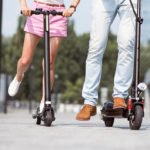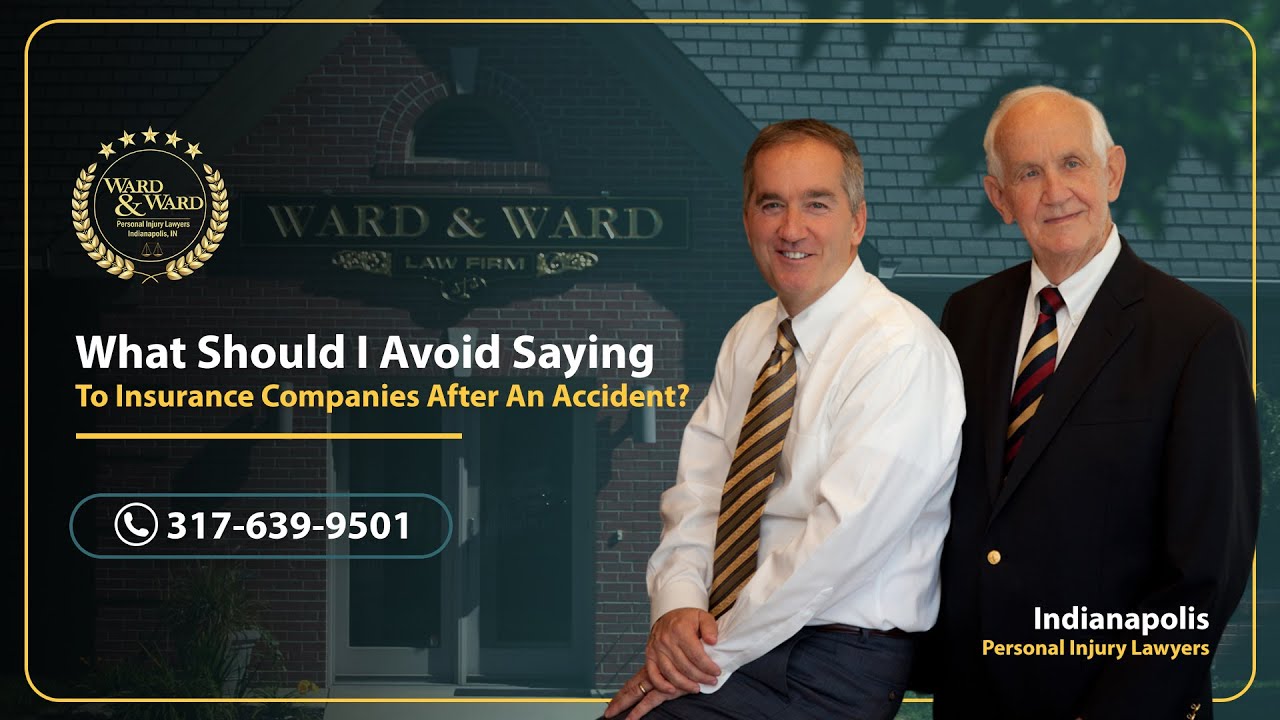Scooter Moped Accident Lawyer – Indianapolis, IN
Knowing how to share the road safely with scooters, mopeds and motorcycles can help to prevent accidents. A large percentage of motorcycle crashes in Indiana involve cars and trucks. Motor vehicle drivers need to give careful consideration to sharing the road with scooters, moped and motorcycles, partially because when massive cars and trucks crash into these smaller vehicles, major injuries and property damage can result. The Indianapolis, IN scooter moped accident lawyer team at Ward & Ward Personal Injury Lawyers wants to help ensure that drivers stay safe on the roads, no matter what kind of vehicle they operate.
Safely sharing the Road with Non-Motorists
Motorcycles, scooters, mopeds and bicycles have a narrower profile than cars and can be very challenging to see. It also can be difficult for a driver to judge the speed of an approaching non-motorist accurately. Consequently, motorists need to stay alert for any travelers who are not motorists. Moreover, in most accidents involving an automobile and a non-motorist, the car driver is at fault. When such accidents happen, it is important for victims to consult with an Indianapolis, IN scooter moped accident lawyer or Indianapolis, IN bike accident lawyer to explore all available legal options.
Non-motorists have as much right to be on the road as motorists do. It is therefore important for motorists to keep the following tips in mind when approaching a motorcycle rider or other non-motorist
- Do not attempt to share lanes with motorcycles. Give a motorcycle rider a full lane width even if it looks like your car can fit alongside the motorcyclist in the same lane.
- When changing lanes or passing a motorcycle, allow plenty of room. Bikers need sufficient room to maneuver around debris or potholes in the road. Do not attempt to pass a motorcycle in the same lane.
- When traveling behind a motorcycle, allow for a greater following distance. Leave four or more seconds of following distance in the event that a motorcyclist needs to stop quickly or unexpectedly.
- Give motorcyclists plenty of room to maneuver on roads when there are poor weather conditions, potholes, uneven pavement, loose gravel, or at railroad crossings. Two-wheel vehicles are more likely to become unstable when there are poor road conditions.
- Be mindful of motorcyclists whenever you are crossing metal bridge gratings, steel bridge expansion joints, and other metal surfaces. Bikers must maneuver differently to stay safe on these surfaces.
- Show motorcycle operators the same right of way considerations that you would to other motorists on the road.
- When making a left turn, look for motorcycles carefully. If you aren’t alert, you could miss a cyclist in your blind spots.
- Do not take for granted a cyclist’s flashing turn signal is an indicator that the biker is not coming through the intersection. Motorcycle turn signals generally are not self-canceling and do not turn off automatically after the rider makes the turn. A biker’s turn signal might not be an accurate indication of an intention to turn.
Contact an Attorney for Help
Non-motorist accidents happen much too often on America’s roadways. Indeed, many of these collisions are preventable. If you’ve been harmed in a collision, an experienced Personal Injury Attorney Indianapolis, IN from Ward & Ward Personal Injury Lawyers can assist you. You may benefit from seeking compensation for your medical bills. Plus, if you can’t work now or in the future as a result of the accident, you may need to seek compensation for lost wages and earning potential. Schedule a risk-free consultation with our legal team today. We look forward to speaking with you.


